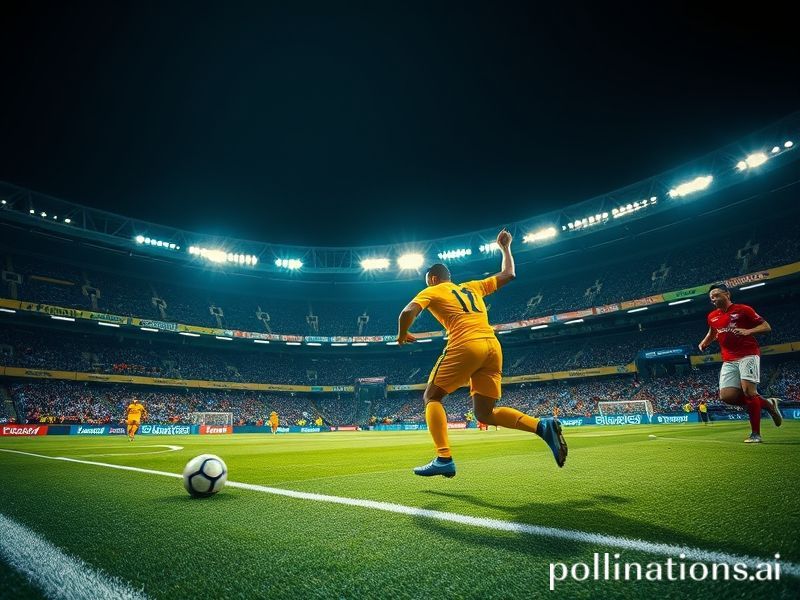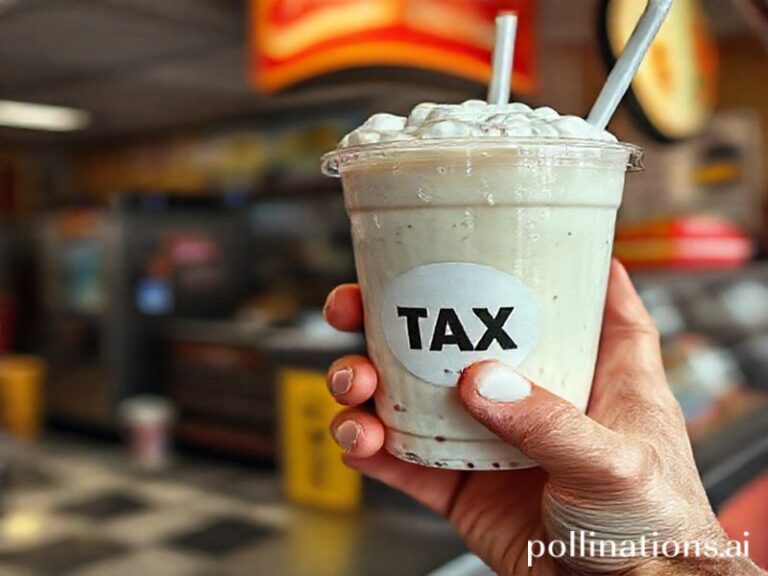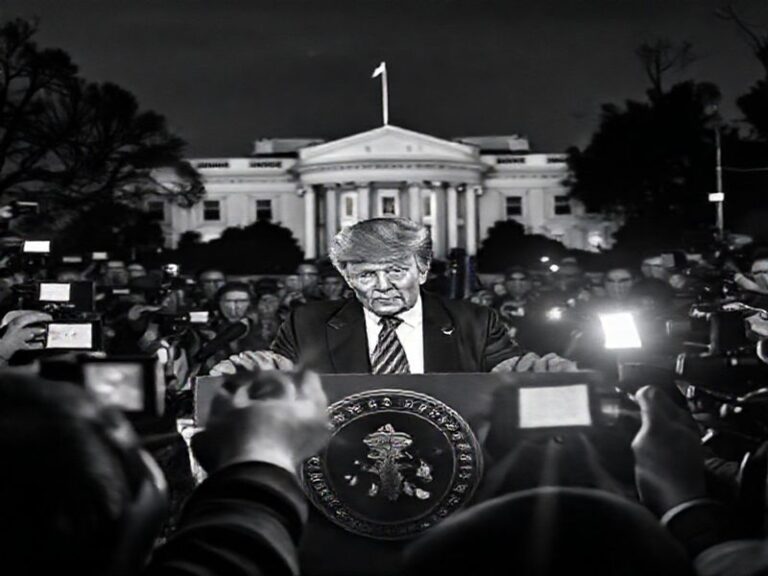Villarreal vs. Osasuna: A Ceramic-Tile Derby in the Age of Global Collapse
Villarreal vs. Osasuna: A Microscopic Civil War in the Macroscopic Chaos
From the vantage point of a satellite drifting somewhere above the Strait of Gibraltar, tonight’s La Liga fixture between Villarreal CF and CA Osasuna looks less like football and more like two neighboring villages hurling artisanal grenades across a river of global anxiety. At 21:00 CET, 22 well-compensated gladiators will jog out onto the Estadio de la Cerámica, each step echoing through living rooms from Lagos to Lahore, where displaced accountants and insomniac poets cling to 90 minutes of choreographed certainty. Somewhere in the world an arms-dealer’s Bloomberg terminal blinks red, a polar ice sheet quietly files for divorce, and yet here we are—arguing over yellow cards as if the moral balance of the universe depended on whether a Uruguayan winger stays on his feet.
Villarreal, population 50,000 and best known for its ceramic tiles that nobody outside Castellón can pronounce, carries the flag of what Europeans still optimistically call “the project.” Bankrolled by local tile barons who discovered that exporting bathrooms to Shanghai is more profitable than selling them to your cousin, the club has become a boutique case study in modern soft power: buy Argentine teenagers, polish them like bathroom fixtures, and ship them to Manchester before the grout dries. Osasuna, meanwhile, represents the other Spain—the one that still eats lunch at 15:00 and regards TikTok as a communicable disease. Based in Pamplona, a city whose primary export is the idea that running in front of large angry livestock is a sensible Friday plan, Osasuna plays like a tax auditor who’s read too much Hemingway: all sinew, suspicion, and sudden bursts of existential violence.
The geopolitical subplot is delicious. Villarreal’s lineup features players on loan from clubs owned by petro-states, private-equity consortia, and—if you squint—a couple of hedge funds registered in Delaware for tax purposes that might as well list “collective human hope” as a depreciating asset. Osasuna counters with a squad assembled for the price of a single Barcelona masseuse, proving once again that efficiency is just a polite word for underfunded desperation. Watching them press high is like watching a Mediterranean credit-card commercial chase a Goldman Sachs quarterly report: one side wants to sell you a lifestyle, the other just wants the bill paid on time.
And then there are the fans. In the stands will be 20,000 souls who have, statistically speaking, endured two pandemics, at least one austerity package, and the creeping realization that retirement now officially qualifies as an extreme sport. They will sing in regional dialects incomprehensible to Siri, wave flags that look suspiciously similar to the ones waved by their grandparents under slightly different fascisms, and upload 4K vertical videos to a cloud server cooled by a glacier that will not exist when their children graduate. The global broadcast feed will splice in reaction shots of a Norwegian pub, a Tokyo sports bar, and a refugee camp in northern Iraq where a teenager wearing a 2006 Torres shirt streams the match over 3G and wonders if Villarreal’s canary-yellow kit is supposed to be ironic.
What’s at stake? Three points, obviously, which in the algorithmic casino of La Liga could translate into Europa League qualification, which in turn could translate into an extra €3 million, which—after agents, image-rights shell corporations, and the obligatory cryptocurrency sleeve sponsor—might actually trickle down to something as quaint as the academy bus driver. But also at stake is the illusion that local narratives still matter, that a ceramic town and a bull-running city can, for one night, hold back the tidal wave of homogenized, streaming-service culture that threatens to turn every football club into a content vertical.
Final whistle blows. Someone wins; someone else practices the ancient art of blaming VAR. The satellite keeps orbiting. Somewhere a glacier sighs. And 500 million viewers exhale in collective relief that, for 90 minutes plus injury time, the apocalypse was postponed by a 0-0 draw that felt, oddly, like mercy.







